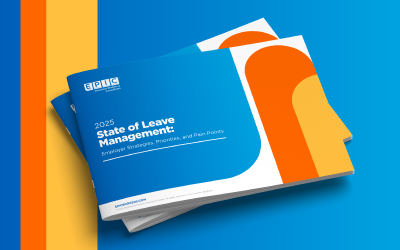EMPLOYEE BENEFITS
The Trump Administration Introduces New Rules to Radically Change Medicaid
Last week, the Trump administration released its new Healthy Adult Opportunity plan. This plan is an effort by Republicans to ease Medicaid rules and allow states better control of the cost of providing indigent care. Medicaid is a shared funding obligation of the federal government and states and accounts for just under 30% of state spending and around 10% of the federal budget. It is an open-ended program, which requires payment for all needed care.
This new plan allows states to opt out of the current funding program and in its place receive a block grant with spending caps but much more flexibility in determining how care is provided. Medicaid covers one in five Americans and is viewed as a safety net for America’s most vulnerable populations – but the cost of providing this care continues to escalate. Kaiser Family Foundation reported that Medicaid spending in 2019 increased by 2.9% over the prior year, however, this was tempered by the reduction in enrollment brought about by improvements in the economy. In 2020, Kaiser expects growth to resume at the historical rate of 6.2%, far outstripping general inflation.
Viewpoints from Craig Hasday
Republican-controlled states are applauding this new plan because, in their view, it allows states to direct funds to the neediest enrollees and to limit the budgetary impact. However, many advocates for the indigent are fearful that the states can use this new flexibility to limit coverage for specific conditions like HIV or even pregnancy. Prescription drugs will no doubt be impacted, as the plan allows Medicaid to restrict coverage to one drug per class for most conditions, a rule commonly applied to commercial insurance plans. Opponents fear that this provision could allow coverage limitations for high-cost drugs developed to treat conditions such as cancer, despite proven effectiveness. The plan removes the limitation of premiums and out-of-pocket costs, which are set under current law at 5% of household income. States would be able to set higher cost-sharing limits, which for many recipients would be too high of a barrier to climb and could lead to care avoidance and more serious medical conditions.
In introducing this new plan, the Trump administration is continuing its efforts to chip away at our current healthcare system, which clearly is strained. And this is a BIG CHIP. Looking at the plan provisions, the potential winners and losers are easy to see. Battlefields will start in the court system where legal challenges are certain but will shift to the states who opt into this new funding. In particular, this will impact those states not adopting Medicaid expansion under the Affordable Care Act.
The controversy surrounding the plan underscores, once again, how difficult it is to make meaningful changes to the status quo and the ripple felt throughout our population and in our economy will be more like a storm. Something has to give, and time will tell whether this will stick.
Related Content
Products
Employee Benefits Consulting
Our dedicated benefits team is focused on delivering better outcomes – to both your benefits program and ...
Industries
Healthcare
Our healthcare practice is known around the world for its expertise and passion in delivering exceptional ...
Products
Pharmacy Solutions
Our Pharmacy Consulting Practice helps companies navigate the unique complexities of expertly managing the ...



